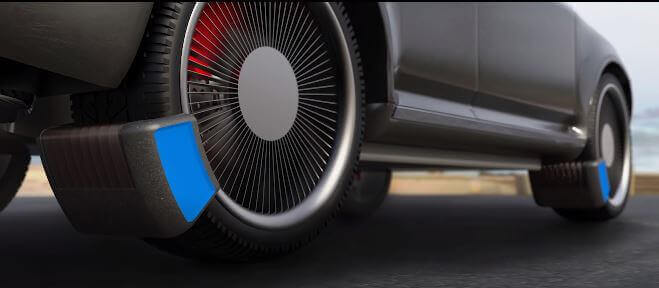Just a few decades ago, the words “artificial intelligence” evoked science fiction films (thank you Spielberg) and the distant future. Today, it seems that this future is getting closer and closer as automotive manufacturers prepare to enter the A.I. era. Indeed, in addition to being used for driving assistance or the creation of autonomous cars, the power of deep learning also finds its use in the development of new products. Closer to our domain, in the tire world, many companies are already using A.I. to their advantage.
For example, last week, Goodyear and SafeAI revealed their innovative integration of intelligent technology into the relationship between autonomous heavy trucks and their tires. Although this project does not involve passenger cars, the integration of A.I. with TPMS is a long-standing idea. This experience in a Californian construction site is therefore a giant step in the right direction!
ReCharge, or how to build a tire in real-time
It must be said that the unveiling of this project came as no surprise to anyone who has followed the Goodyear news in the last few years. Another of their innovations of the kind, which was to be presented at the Geneva show last March, also shows the power of this technology. ReCharge, the latest iteration of the concept, could truly transform the tire market if it became available for sale.
By analyzing their owners’ driving habits, ReCharge tires are able to create a profile and determine their needs. Using capsules that release different synthetic materials, the tire is then able to modify its structure to better match these needs. Thus, the tires of a car that travels mainly on highways will be optimized to minimize fuel consumption. Conversely, the stops and starts of urban driving will cause your tires to solidify using materials inspired by spider silk.
It’s for comfort, too!
Other companies are also interested in this aspect of science for other reasons: your comfort. One such company is Falken, whose latest project, unveiled last October, aims to reduce the noise caused by tires rolling on the road. In association with Hyundai-Kia and the Korean University of Inha, their engineers have developed a perfectly calibrated acoustic chamber to accurately measure the sound waves produced. The analysis of these waves by artificial intelligence then makes it possible to locate the source of the noise, from the tread pattern to the axle noise. This method, unique to Falken, promises less noisy results that should be on the market within five years.
Who would have thought that the intelligence of a machine could one day go so far as to modify your tires in real time? So far, few concrete projects have been revealed to the public, but Goodyear and Falken’s advances speak volumes about the future of the tire industry. When will self-repairing tires hit the market? In our opinion, much sooner than you might think…






